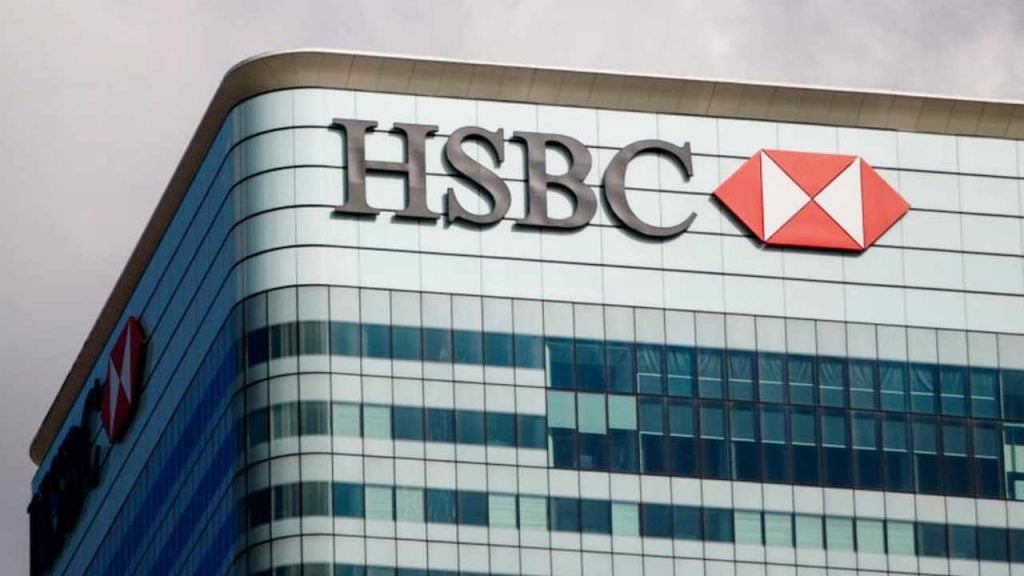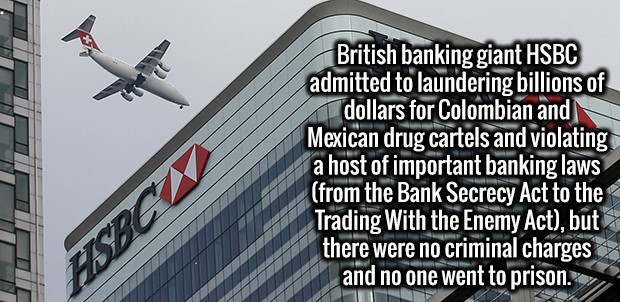British banking giant hsbc admitted to laundering billions of dollars for colombian and mexican drug cartels and violating a host of important banking laws but there were no criminal charges and no one went to prison

HSBC Scandal: A Shocking Tale of Banking Irresponsibility

In a startling revelation that shook the financial world, British banking giant HSBC admitted to engaging in money laundering activities for Colombian and Mexican drug cartels. The sheer scale of the unlawful activities exposed the glaring loopholes in the global banking system and raised serious questions about the effectiveness of regulatory authorities. The most shocking aspect of the scandal is that despite admitting guilt and acknowledging violations of crucial banking laws, no criminal charges were filed and not a single person faced imprisonment for their involvement.
The HSBC scandal, which unfolded in 2012, brought to light the bank’s rampant involvement in laundering billions of dollars for drug cartels. This illicit activity not only undermined the integrity of the banking sector but also directly supported the operations of one of the most dangerous and destructive criminal organizations in the world.
HSBC’s illicit dealings with these drug cartels violated a string of important banking laws, including the Bank Secrecy Act, the Trading with the Enemy Act, and the International Emergency Economic Powers Act. These laws were designed to prevent financial institutions from becoming unwitting accomplices to criminal enterprises and to maintain the integrity of the global financial system. Yet, despite the flagrant violations, the bank managed to escape criminal charges and the individuals responsible for these actions remained largely unscathed.

The far-reaching implications of the HSBC scandal cannot be overstated. It exposed how easily the banking system could be exploited by criminal organizations, thereby undermining global efforts to combat drug trafficking and money laundering. Moreover, it eroded public trust in the financial system and raised questions about the effectiveness of regulatory bodies in holding banks accountable for their actions.
It is particularly concerning that HSBC, one of the largest and most influential banks in the world, was able to evade serious consequences for its illegal activities. This begs the question: Are banks too big to fail and too powerful to be held accountable?
The lack of criminal charges and prison sentences in the HSBC scandal sends a worrying message to the public. It suggests that the banks, despite being entrusted with the public’s money and operating within a heavily regulated industry, can act with impunity and escape the full force of the law. This glaring double standard undermines the legitimacy of our justice system and fuels public frustration.
The HSBC scandal serves as a stark reminder of the urgent need for reforms within the banking industry and stronger regulatory enforcement. The public deserves a financial system that operates with integrity and accountability, and that actively works to prevent money laundering and illicit activities. Only by holding banks accountable for their actions and ensuring that illegal activities are met with appropriate consequences can we restore trust in our financial institutions.
In conclusion, the HSBC scandal laid bare the shortcomings of the global banking system and exposed the vulnerability of the regulatory framework. The absence of criminal charges and prison sentences for HSBC’s involvement in money laundering for drug cartels highlights the need for comprehensive reforms to ensure that banks are held accountable for their actions. The public deserves a financial system built on transparency, integrity, and accountability – a system that actively works to combat illicit activities and restore faith in the banking industry.
Source: Rolling Stone - “The Outrageous HSBC Settlement”
Share
Related Posts
Quick Links
Legal Stuff

